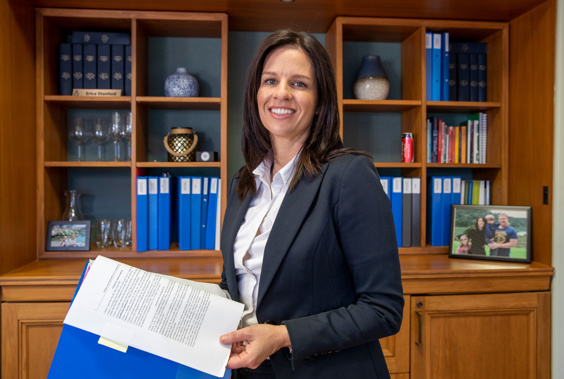
The newly appointed Education Minister, Erica Stanford, has spoken of the pressure of the job ahead to turn around the country's literacy and numeracy statistics - saying she feels "a knot in my stomach" every morning as she considers the new Government's targets.
With the latest Pisa results just released, New Zealand has now scored successively poor results in all three areas of science, maths and reading almost every time. The only exceptions were a tiny improvement in science – and no change in reading – between 2006 and 2009.
The 2022 results in reading and science are down by five and four points respectively from 2018. These falls are small and not statistically significant. But similar small falls have accumulated over time. Mathematics was worse, with results down a whopping 15 points since 2018.
That is equivalent to about six months of schooling lost in just four years.
Talking to The Mike Hosking Breakfast on Wednesday, Stanford was asked if there was reason to be concerned or if we should be less worried - considering virtually everybody's results appeared to have been hit by the Covid-19 pandemic.
"No, we should still be worried," said Stanford.
"There probably are two things gong on here - there is the Covid effect - my concern mostly is for the decline over time and working out the causes of that and making sure we're embedding things to address that."
Stanford recognised the opportunity ahead of her to change the country's trajectory on where it stood in the OECD on its students' performance. The National Party had been campaigning on "teaching the basics brilliantly".
She said this looked like a clearly defined, year-by-year, knowledge-based curriculum.
"Like embedding the knowledge of science into every primary school, and the effective and consistent valuation of progress to make sure we're not letting kids fall through the cracks, identifying [who is] and identifying them early to keep them on track."
Hosking pointed out the top-performing countries in the most recent Pisa results were all based in Asia, and he asked what the link was.
Stanford suggested the link had nothing to do with the geographical location of the top-performers.
"The link is they've been following evidence-based pedagogy and we haven't for a very long period of time," she said.
"If you think back for the last 20, 30 years, we've been following the whole word approach to reading with read-and-recovery, which is embedding bad practices into our kids, we're teaching them bad habits."
Stanford and the new Government have a clearly defined mandate to introduce a structured approach to learning in the classroom - covering reading as well as maths, which she said has been following the numeracy project.
"[This is] teaching kids a whole range of strategies rather than embedding basic mathematical things they need to build year on year to acquire knowledge, and we haven't been doing that."
Hosking asked Stanford if she was ready for the responsibility of turning the results around.
"Absolutely I am," she replied.
"Look, we have said we want 80 per cent of kids to curriculum by 2030. It is going to take time to see that shift as we embed those practices, as we embed the curriculum, who knows where I'll be, but my key focus is to see these things embedded over the next three, six, nine years so we start to see that shift."
Take your Radio, Podcasts and Music with you









